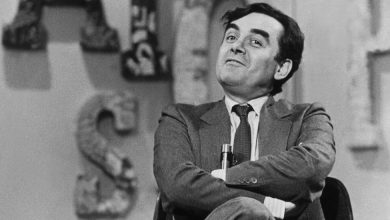Was the 401(k) a Mistake?

Jen Forbus turned 50 this year. She is in good health and says her life has only gotten better as she has grown older. Forbus resides in Lorain, Ohio, not far from Cleveland; she is single and has no children, but her parents and sisters are nearby. She works, remotely, as an editorial supervisor for an educational publishing company, a job that she loves. She is on track to pay off her mortgage in the next 10 years, and having recently made her last car payment, she is otherwise debt-free. By almost any measure, Forbus is middle class.
Listen to this article, read by Malcolm Hillgartner
Still, she worries about her future. Forbus would like to stop working when she is 65. She has no big retirement dreams — she is not planning to move to Florida or to take extravagant vacations. She hopes to spend her later years enjoying family and friends and pursuing different hobbies. But she knows that she hasn’t set aside enough money to ensure that she can realize even this modest ambition.
A former high school teacher, Forbus says she has around $200,000 in total savings. She earns a high five-figure salary and contributes 9 percent of it to the 401(k) plan that she has through her employer. The company also makes a matching contribution that is equivalent to 5 percent of her salary. A widely accepted rule of thumb among personal-finance experts is that your retirement income needs to be close to 80 percent of what you earned before retiring if you hope to maintain your lifestyle. Forbus figures that she can retire comfortably on around $1 million, although if her house is paid off, she might be able to get by with a bit less. She is not factoring Social Security benefits into her calculations. “I feel like it’s too uncertain and not something I can depend on,” she says.
But even if the stock market delivers blockbuster returns over the next 15 years, her goal is going to be difficult to reach — and this assumes that she doesn’t have a catastrophic setback, like losing her job or suffering a debilitating illness.
She also knows that markets don’t always go up. During the 2008 global financial crisis, her 401(k) lost a third of its value, which was a scarring experience. From the extensive research that she has done, Forbus has become a fairly savvy investor; she’s familiar with all of the major funds and has 60 percent of her money in stocks and the rest in fixed income, which is generally the recommended ratio for people who are some years away from retiring. Still, Forbus would prefer that her retirement prospects weren’t so dependent on her own investing acumen. “It makes me very nervous,” she concedes. She and her friends speak with envy of the pensions that their parents and grandparents had. “I wish that were an option for us,” she says.



